An epistemic community is a network of knowledge-based experts who help decision-makers to define the problems they face, identify various policy solutions and assess the policy outcomes. The definitive conceptual framework of an epistemic community is widely accepted as that of Peter M. Haas. He describes them as
"...a network of professionals with recognised expertise and competence in a particular domain and an authoritative claim to policy relevant knowledge within that domain or issue-area."

A state's foreign policy or external policy is its objectives and activities in relation to its interactions with other states, unions, and other political entities, whether bilaterally or through multilateral platforms. The Encyclopedia Britannica notes that a government's foreign policy may be influenced by "domestic considerations, the policies or behaviour of other states, or plans to advance specific geopolitical designs."

The Université du Québec à Rimouski is a public university located in Rimouski, Quebec, Canada with a campus in Lévis.

A preferential trade area is a trading bloc that gives preferential access to certain products from the participating countries. This is done by reducing tariffs but not by abolishing them completely. It is the first stage of economic integration.

An international environmental agreement or sometimes environmental protocol, is a type of treaty binding in international law, allowing them to reach an environmental goal. In other words, it is "an intergovernmental document intended as legally binding with a primary stated purpose of preventing or managing human impacts on natural resources."
The Multilateral Agreement on Investment (MAI) was a draft agreement negotiated in secret between members of the Organisation for Economic Co-operation and Development (OECD) between 1995 and 1998. It sought to establish a new body of universal investment laws that would grant corporations unconditional rights to engage in financial operations around the world, without any regard to national laws and citizens' rights. The draft gave corporations a right to sue governments if national health, labor or environment legislation threatened their interests. When its draft became public in 1997, it drew widespread criticism from civil society groups and developing countries, particularly over the possibility that the agreement would make it difficult to regulate foreign investors. After an intense global campaign was waged against the MAI by the treaty's critics, the host nation France announced in October 1998 that it would not support the agreement, effectively preventing its adoption due to the OECD's consensus procedures.

Environmental policy is the commitment of an organization or government to the laws, regulations, and other policy mechanisms concerning environmental issues. These issues generally include air and water pollution, waste management, ecosystem management, maintenance of biodiversity, the management of natural resources, wildlife and endangered species. For example, concerning environmental policy, the implementation of an eco-energy-oriented policy at a global level to address the issues of global warming and climate changes could be addressed. Policies concerning energy or regulation of toxic substances including pesticides and many types of industrial waste are part of the topic of environmental policy. This policy can be deliberately taken to influence human activities and thereby prevent undesirable effects on the biophysical environment and natural resources, as well as to make sure that changes in the environment do not have unacceptable effects on humans.
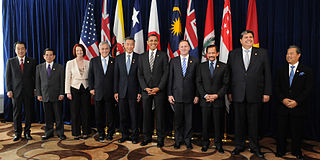
The Trans-Pacific Partnership (TPP), or Trans-Pacific Partnership Agreement, was a proposed trade agreement between Australia, Brunei, Canada, Chile, Japan, Malaysia, Mexico, New Zealand, Peru, Singapore, Vietnam, and the United States signed on 4 February 2016. After the newly elected President Donald Trump withdrew the United States from TPP in January 2017, the agreement could not be ratified as required and did not enter into force. The remaining countries negotiated a new trade agreement called Comprehensive and Progressive Agreement for Trans-Pacific Partnership, which incorporates most of the provisions of the TPP and which entered into force on 30 December 2018.
The Energy Charter Treaty (ECT) is an international agreement that establishes a multilateral framework for cross-border cooperation in the energy industry. The treaty covers all aspects of commercial energy activities including trade, transit, investments and energy efficiency. The treaty contains dispute resolution procedures both for States Parties to the Treaty and as between States and the investors of other States, who have made investments in the territory of the former.
Paradiplomacy is international relations conducted by subnational, regional or local governments. With globalisation, non-central governments play an increasingly influential international role, and can develop their own foreign policy. Regions, federal states, provinces and cities seek their way to promote trade, investments, cooperation and partnership in a long list of subjects and account for a significant part of today's cross-borders contacts. This trend raises new interesting questions concerning public international law and opens a debate on the future of the state system that has provided the grounds for the international political order in the last centuries.
An eco-tariff, also known as an environmental tariff or carbon tariff, is a trade barrier erected for the purpose of reducing pollution and improving the environment. These trade barriers may take the form of import or export taxes on products that have a large carbon footprint or are imported from countries with lax environmental regulations. The proposed EU Carbon Border Adjustment Mechanism would be a carbon tariff.
An international investment agreement (IIA) is a type of treaty between countries that addresses issues relevant to cross-border investments, usually for the purpose of protection, promotion and liberalization of such investments. Most IIAs cover foreign direct investment (FDI) and portfolio investment, but some exclude the latter. Countries concluding IIAs commit themselves to adhere to specific standards on the treatment of foreign investments within their territory. IIAs further define procedures for the resolution of disputes should these commitments not be met. The most common types of IIAs are bilateral investment treaties (BITs) and preferential trade and investment agreements (PTIAs). International taxation agreements and double taxation treaties (DTTs) are also considered IIAs, as taxation commonly has an important impact on foreign investment.

The Faculté de droit de l'Université Laval is the law school of Université Laval. Founded in 1852, it is one of the oldest institutions of its kind in North America. It hosts more than 1,000 students in its curriculum of first, second, and third years, with more than 45 lecturers teaching and supervising research projects in most areas of law. The research activity is particularly intense in the field of human rights and public freedoms in light of legal issues, economic law, environmental law, public law, and private international trade.
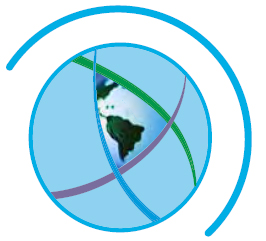
The Center for International Sustainable Development Law (CISDL) is an international legal research center with the mission to promote sustainable societies and the protection of ecosystems by advancing the understanding, development and implementation of international sustainable development law.
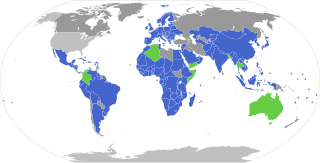
The Nagoya Protocol on Access to Genetic Resources and the Fair and Equitable Sharing of Benefits Arising from their Utilization to the Convention on Biological Diversity, also known as the Nagoya Protocol on Access and Benefit Sharing (ABS) is a 2010 supplementary agreement to the 1992 Convention on Biological Diversity (CBD). Its aim is the implementation of one of the three objectives of the CBD: the fair and equitable sharing of benefits arising out of the utilization of genetic resources, thereby contributing to the conservation and sustainable use of biodiversity. It sets out obligations for its contracting parties to take measures in relation to access to genetic resources, benefit-sharing and compliance.
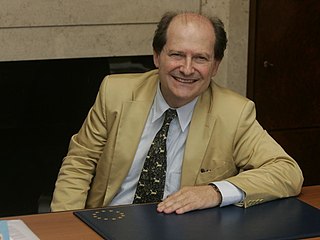
Mario Telò is an Italian political scientist and researcher who focuses on European studies, political theory and international relations. He is Professor of Political science and International Relations at Université Libre de Bruxelles and LUISS Guido Carli University Rome. He is a member of the Académie Royale de Belgique and Central Coordinator of the Global GEM PhD school.

The Institute for Advanced International Studies, now known as the School of Advanced International Studies is a part of Université Laval.
Thomas De Koninck is a philosopher from Québec.
Rosa Galvez is a Canadian Senator from Quebec. At the time of her appointment, she was a professor at Laval University and head of the university's Department of Civil Engineering and Water Engineering. Her appointment to the Senate was announced on November 2, 2016.
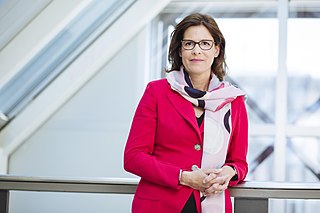
Sophie D’Amours is an engineer and a professor at Université Laval. On April 26, 2017, she was elected the 26th rector of Université Laval, the first woman to hold the position.